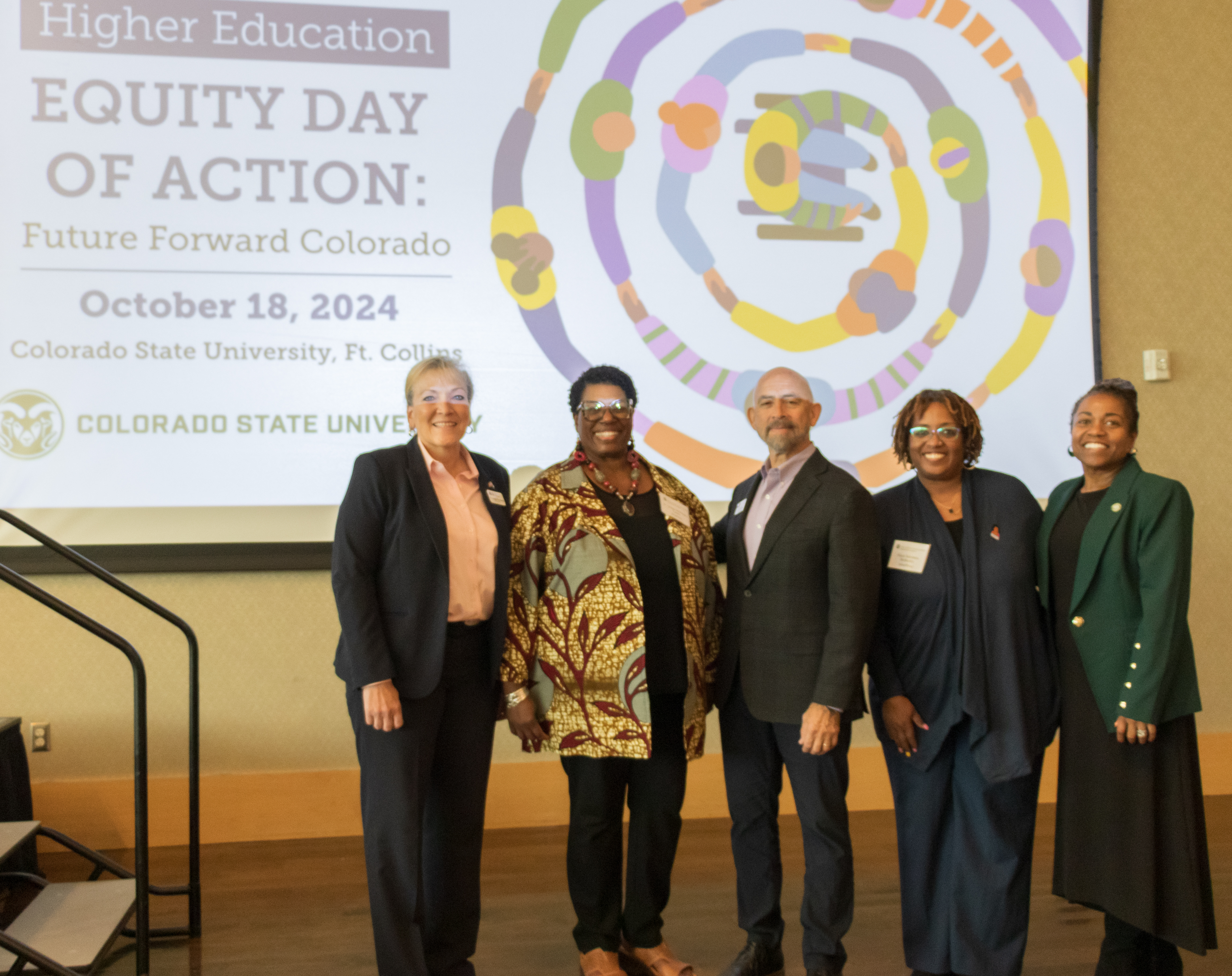Leaders from the Colorado Community College System (CCCS) kicked off work to build a new Rural College Consortium (RCC), a pioneering technology project that will virtually connect courses and student services across seven rural colleges and 16 campuses.
Under the RCC, rural colleges will share IT systems, processes, and practices to offer collaborative academic and workforce training programs, as well advising, tutoring, and other services. A cybersecurity student in Lamar, for example, could take remote courses with classmates in Wray and Durango and meet with a mental health counselor online.
“For too long, Coloradans living in rural areas have faced additional barriers to education, and we intend to change that,” said CCCS chancellor Joe Garcia. “These new models make our colleges more sustainable while expanding options for students.”
To officially kick off the project, Morgan Community College (MCC) hosted the first Rural College Summit that brought together presidents and staff from participating colleges—Colorado Northwestern Community College (CNCC), Lamar Community College, Northeastern Junior College, Otero College, Pueblo Community College, and Trinidad State College.
“Our rural colleges are filled with talented, creative, and dedicated people working to improve student opportunities throughout rural communities,” said Dr. Curt Freed, president of MCC. “This collaborative day will springboard our progress and help find valuable ways to move this important initiative forward. We are inspired by the positive approach, that we are working on together, to serve Colorado.”
The RCC will leverage a synchronous approach that lets students attend classes in-person at the site of the teaching institution; virtually from a classroom at a partner institution; or from their home or another remote location. CCCS received $8.6 million in state funding to upgrade colleges’ IT systems with the hopes of launching the RCC next summer or fall.
Although rural colleges are already sharing 35 courses, the new system will automate logistics to make the experience easier for everyone, said Dr. Landon Pirius, CCCS vice chancellor for academic and student affairs. Instead of running courses with low enrollment—or canceling them altogether—colleges will be able to pool instructors, students, and resources to offer a full classroom experience.
“In addition to helping institutions stay financially sustainable, the Consortium allows for enhanced access that’s far better than what colleges can do on their own,” he added.
Keith Peterson, vice president of instruction at CNCC, is excited to see the next phase of work underway after more than three years of planning. While most conversations have happened among college presidents and vice presidents, now advisors, marketing managers, registrars, and other college professionals will drive RCC implementation.
“It’s the idea that we are stronger together—that our advocacy is more effective when we speak in a collective voice, and that we can overcome challenges by collectively sharing those best practices,” Peterson said. “To watch that happening holistically within all the institutions is fantastic.”
As the RCC gets closer to launch, follow the CCCS blog for updates.


